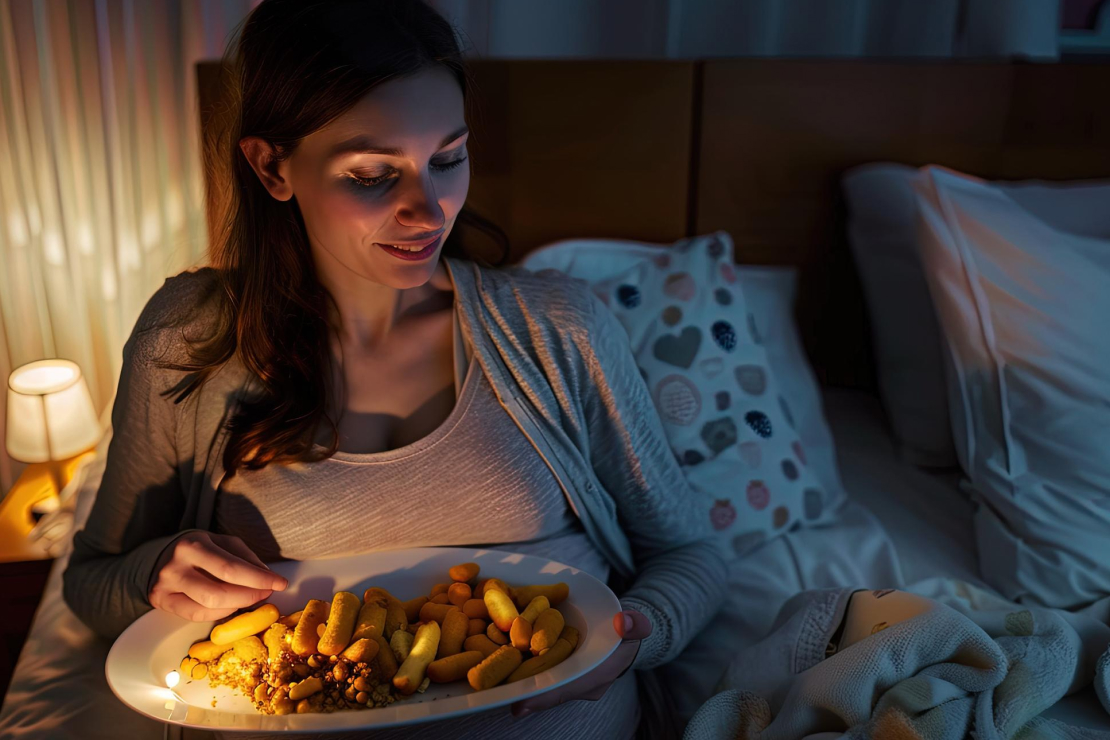Eating Broccoli Before Bed: Good Idea or Bad Idea?
Discover the science behind eating broccoli before bedtime, its potential benefits and drawbacks, and how to make the best decision for your health and sleep quality.

Table of Content
The Nighttime Nutrition Debate
The question of whether to eat broccoli before bed has sparked numerous discussions among health enthusiasts and nutrition experts. While broccoli is undeniably a nutritional powerhouse, timing its consumption requires careful consideration.
Nutritional Profile of Broccoli
Before diving into the timing debate, let's understand what makes broccoli such a valuable addition to your diet:
- Low in calories (55 calories per cup)
- High in fiber (2.4g per cup)
- Rich in vitamin C and K
- Contains beneficial compounds like sulforaphane
- Good source of minerals including potassium and calcium
Benefits of Eating Broccoli Before Bed
There are several potential advantages to consuming broccoli in the evening. The high fiber content in broccoli can help maintain stable blood sugar levels throughout the night, potentially leading to better sleep quality. Additionally, broccoli contains natural compounds like tryptophan, which can help promote the production of sleep-inducing hormones like melatonin.
The vegetable's high magnesium content may also contribute to muscle relaxation and stress reduction, making it easier to wind down before bed. For those focused on weight management or muscle recovery, broccoli's protein content, though modest, can support overnight tissue repair without adding significant calories to your daily intake.
- Promotes feelings of fullness
- Provides slow-digesting nutrients
- Supports overnight muscle recovery
- Contains natural compounds that may aid sleep
- Low in calories for weight management
"The key to eating broccoli before bed lies in proper preparation and timing. It's not just about what you eat, but how and when you eat it."
Potential Drawbacks to Consider
While broccoli offers numerous health benefits, consuming it before bed isn't without potential challenges. The high fiber content that makes broccoli so nutritious can also lead to increased gas production and bloating in some individuals, particularly when eaten close to bedtime. This is because our digestive system naturally slows down as we prepare for sleep.
Furthermore, broccoli contains complex carbohydrates that require more energy to digest compared to simpler foods. This increased digestive activity might interfere with your body's natural wind-down process. Some people also report experiencing increased alertness due to broccoli's high vitamin C content and other bioactive compounds, which could potentially impact sleep initiation.
- May cause bloating in some individuals
- Could lead to digestive discomfort
- Might affect sleep quality if eaten too close to bedtime
- Raw broccoli can be harder to digest
- Contains natural compounds that may increase alertness
Best Practices for Evening Broccoli Consumption
To maximize the benefits while minimizing potential drawbacks, it's essential to follow certain guidelines when eating broccoli before bed. Proper preparation is crucial - steaming or lightly cooking broccoli breaks down some of the harder-to-digest compounds while preserving its nutritional benefits. This cooking method makes it easier for your body to process the nutrients without overtaxing your digestive system during sleep.
Timing is equally important. Eating broccoli at least 2-3 hours before bedtime gives your body adequate time to begin digestion while you're still active. This buffer period helps reduce the likelihood of sleep disruption and digestive discomfort. Combining broccoli with a small amount of healthy fats, such as olive oil or avocado, can also help your body better absorb its fat-soluble vitamins while potentially slowing down digestion for more sustained nutrient release.
- Steam or lightly cook for better digestion
- Eat at least 2-3 hours before bedtime
- Combine with a small portion of healthy fats
- Listen to your body's response
- Consider portion size
Who Should Avoid Late-Night Broccoli?
While broccoli is generally healthy, certain individuals should be cautious about consuming it close to bedtime. People with digestive sensitivities or conditions like Irritable Bowel Syndrome (IBS) may find that evening broccoli consumption triggers uncomfortable symptoms that can interfere with sleep. The high fiber content and specific compounds in broccoli can be particularly challenging for these individuals to process during nighttime hours.
Those with acid reflux or GERD should be especially careful, as lying down shortly after eating cruciferous vegetables like broccoli can exacerbate symptoms. Additionally, individuals taking certain medications that affect nutrient absorption or digestion should consult with their healthcare provider about the timing of their broccoli consumption, as it may impact the medication's effectiveness.
- Those with sensitive digestive systems
- People with GERD or acid reflux
- Individuals prone to bloating
- Those with sleep sensitivities
- People taking certain medications
Alternative Evening Vegetables
If you find that broccoli isn't the best choice for your evening meals, there are several alternatives that can provide similar nutritional benefits with potentially fewer sleep-disrupting effects. Cucumber slices, for example, offer hydration and minerals with very little fiber content that could cause digestive issues. Steamed carrots provide beneficial nutrients while being generally easier to digest than cruciferous vegetables.
Lettuce contains natural compounds that can actually promote sleep, making it an excellent evening choice. Cooked zucchini and asparagus are also good alternatives, as they tend to be gentler on the digestive system while still providing valuable nutrients. These vegetables can be prepared simply and paired with other sleep-friendly foods for a satisfying evening meal that won't disrupt your rest.
- Cucumber slices
- Steamed carrots
- Lettuce
- Cooked zucchini
- Asparagus
Preparation Methods That Help
How you prepare broccoli can impact its effects on sleep and digestion:
- Steam until tender but still crisp
- Avoid heavy seasonings late at night
- Consider blanching for easier digestion
- Pair with small amounts of healthy fats
- Cut into smaller, manageable pieces
Timing Your Broccoli Consumption
The ideal timing for evening broccoli consumption depends on several factors:
- Your typical bedtime routine
- Individual digestion speed
- Personal sleep patterns
- Evening activity level
- Other foods consumed
"Listen to your body's signals. What works for one person may not work for another when it comes to evening vegetable consumption."
Signs That Evening Broccoli Works for You
Positive indicators include:
- No sleep disruption
- Comfortable digestion
- Sustained energy levels
- Morning hunger cues
- No midnight discomfort
Signs to Adjust Your Timing
Watch for these warning signs:
- Difficulty falling asleep
- Nighttime bloating
- Digestive discomfort
- Morning grogginess
- Increased bathroom visits
The Bottom Line
Eating broccoli before bed can be either beneficial or problematic, depending on your individual circumstances. The key lies in understanding your body's responses and making adjustments accordingly. Consider factors such as timing, preparation method, and portion size when deciding whether to include broccoli in your evening meal plan.
If you choose to eat broccoli before bed, start with small portions and pay attention to how your body responds. You may find that with proper timing and preparation, broccoli can be a healthy addition to your evening routine. However, if you experience any discomfort, consider moving your broccoli consumption to earlier in the day or exploring alternative vegetables for your evening meals.
Remember that nutrition is highly individual, and what works best for you may differ from others. The most important factor is finding a sustainable eating pattern that supports both your health goals and quality sleep.
Start Your Health Journey Today
Download Macro Tracking AI and take control of your nutrition with the power of artificial intelligence.
Download on App Store

